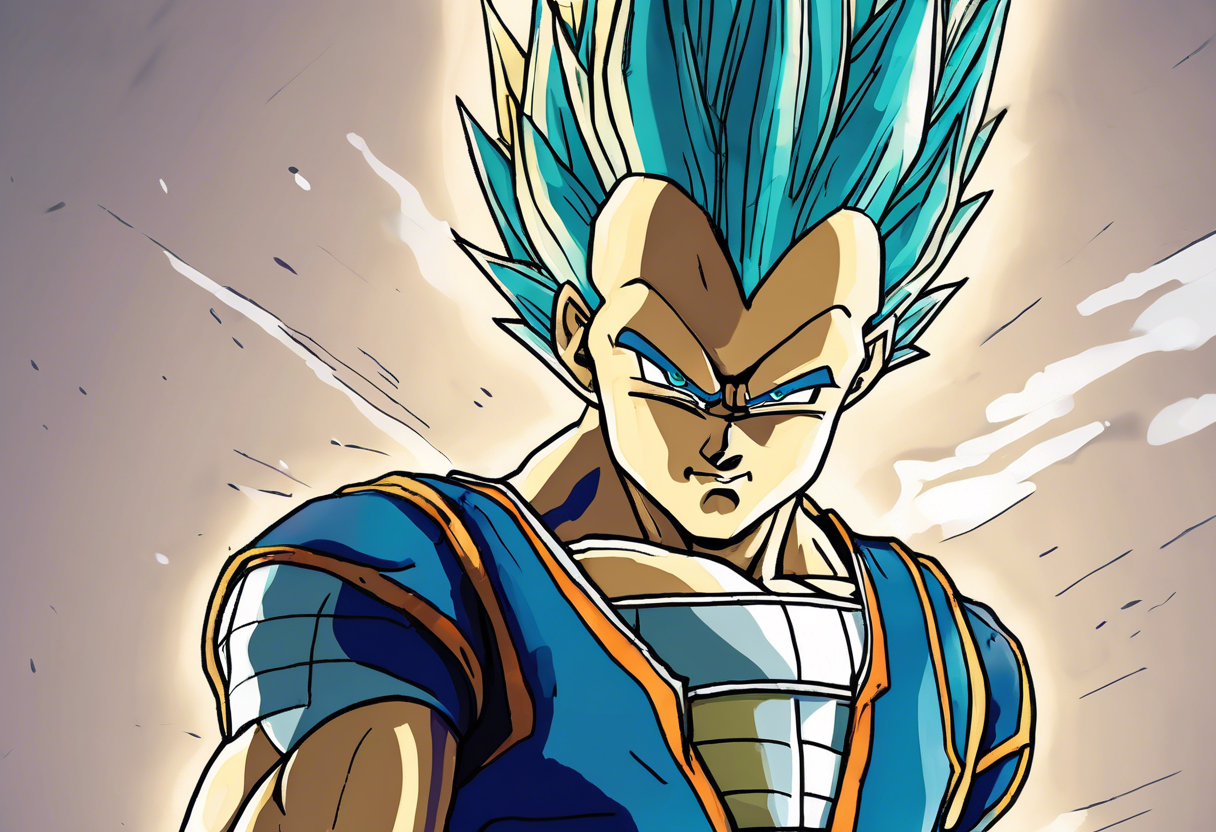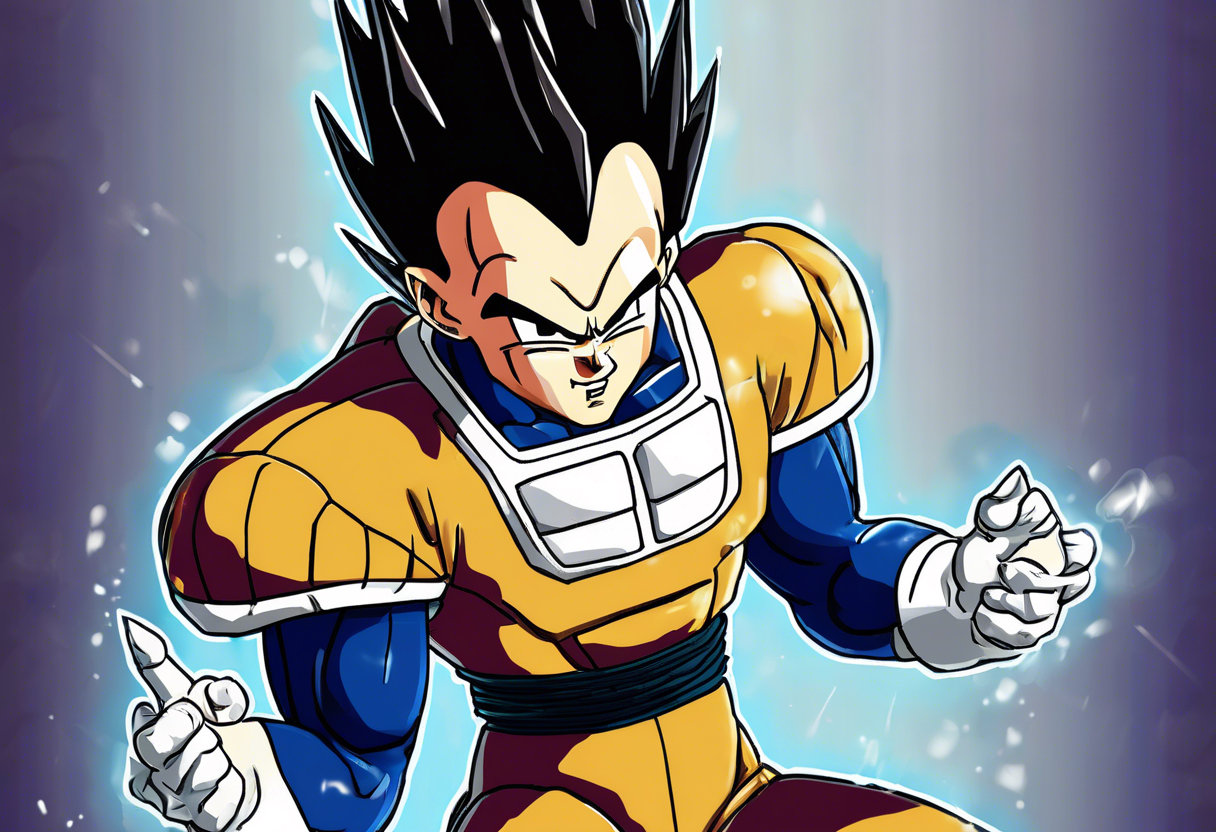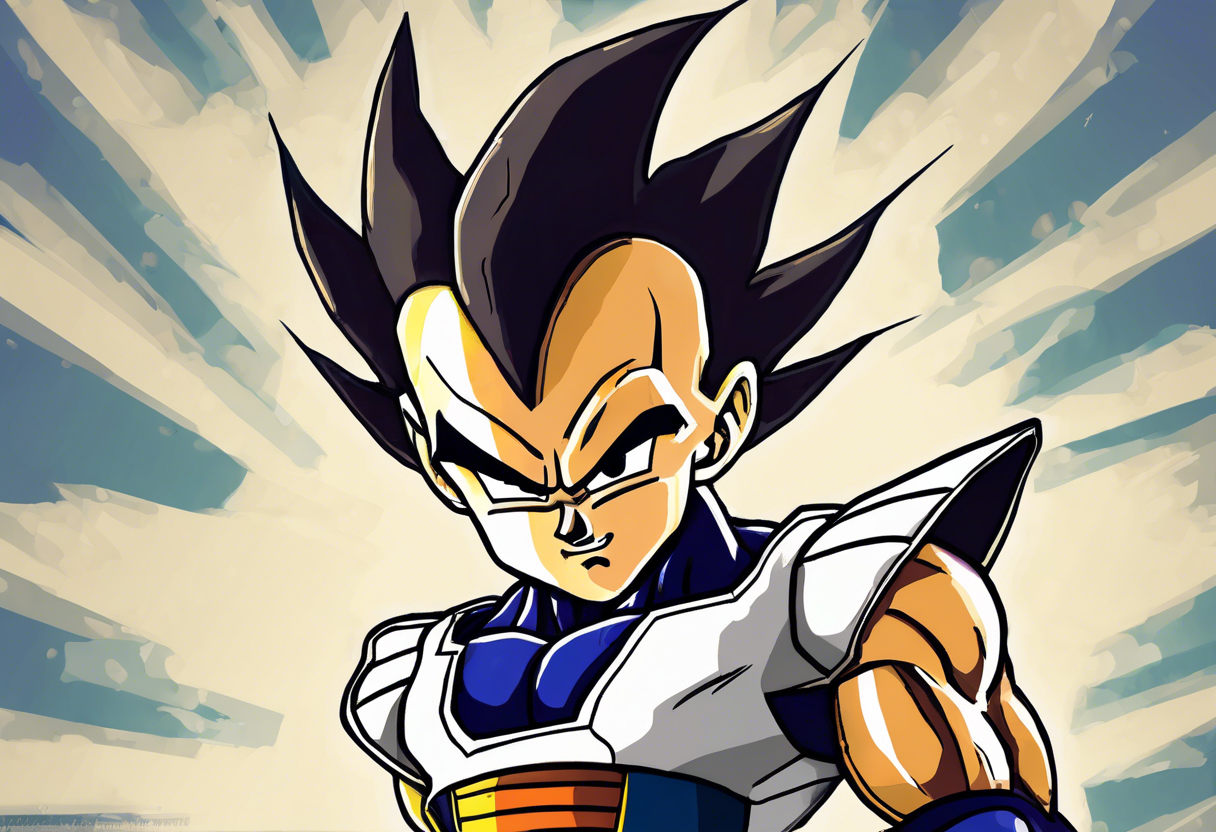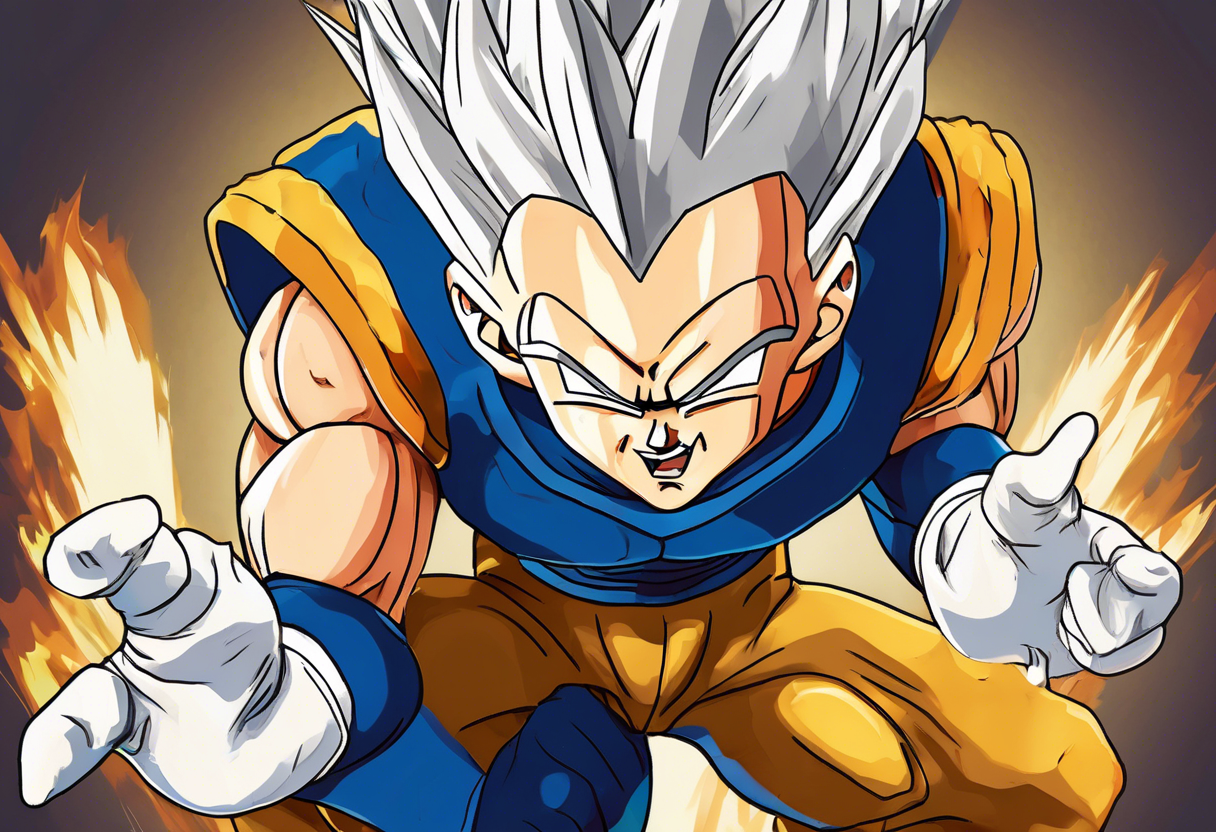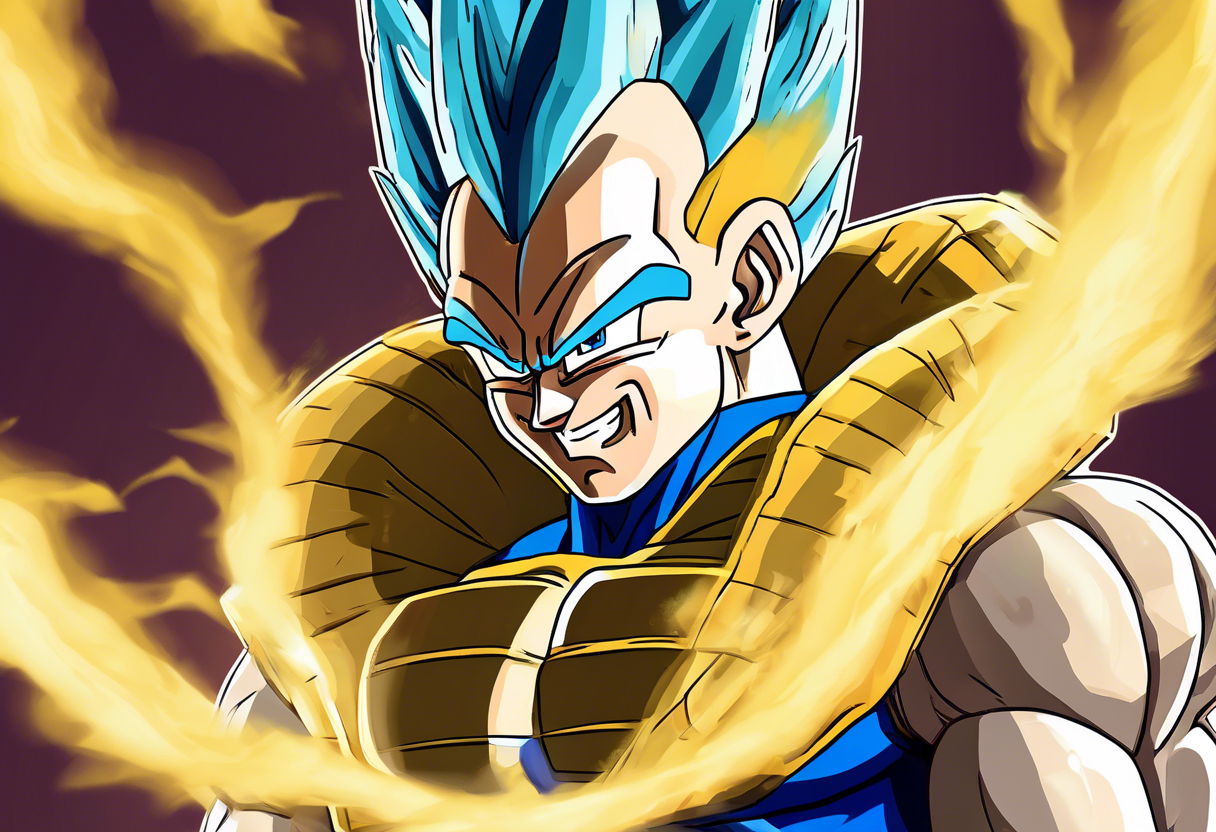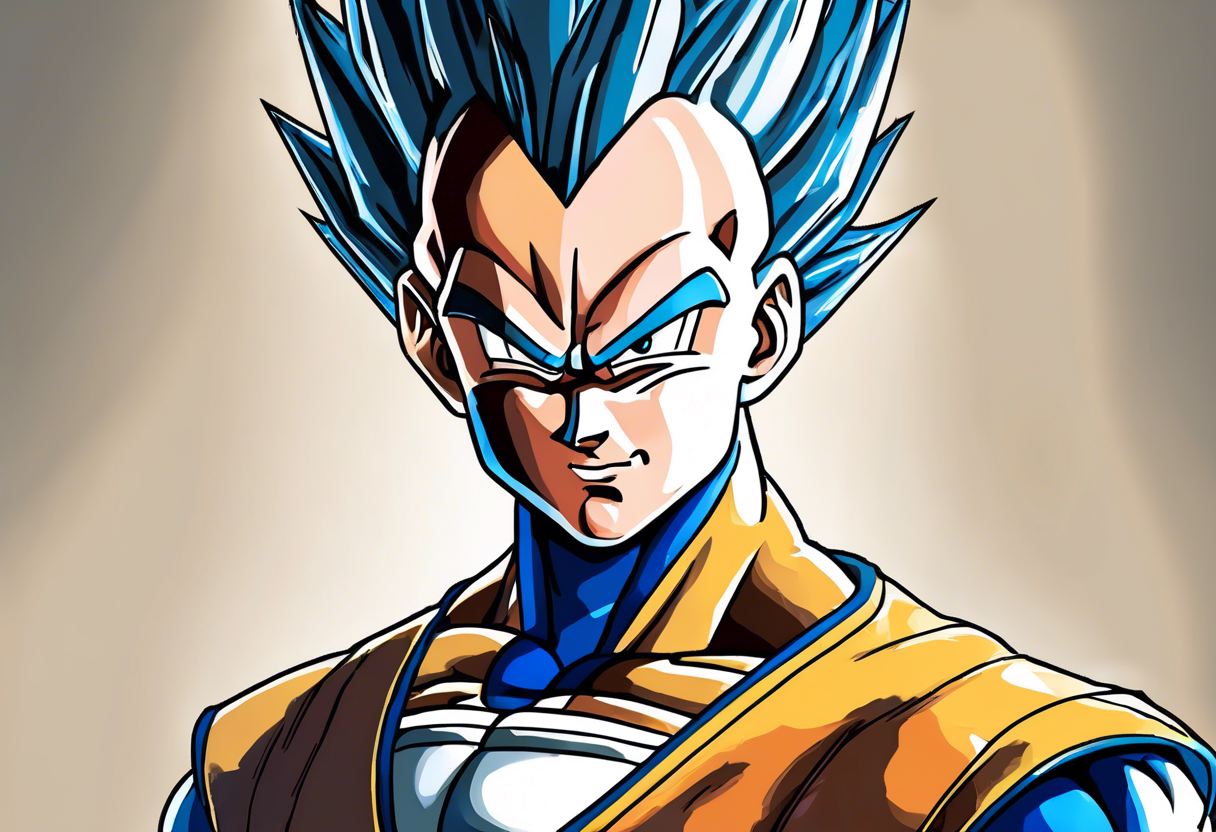Contents
Vegeta: The Complex Prince of the Saiyans
Introduction
Vegeta, fully known as Prince Vegeta IV, is a pivotal and complex character in the Japanese anime and manga franchise Dragon Ball, created by the renowned manga artist Akira Toriyama. First appearing in chapter #204 of the Dragon Ball manga, titled "Sayonara, Son Goku," published in Weekly Shōnen Jump on January 7, 1989, Vegeta has since become an iconic figure in the world of anime and manga [1][2][4].
As the prince of the elite extraterrestrial warrior race known as the Saiyans, Vegeta embodies the traits of his royal lineage: he is naturally blunt, regal, hard-working, and filled with pride. His character is deeply rooted in the societal hierarchy and beliefs of the Saiyan race, which emphasizes strength, power, and the pursuit of superiority. This background sets the stage for his intricate and evolving role within the Dragon Ball narrative.
Role in the Story
Vegeta’s journey in Dragon Ball is marked by significant transformations and pivotal decisions. Initially introduced as the first major antagonist, Vegeta arrives on Earth in search of the Dragon Balls to achieve immortality, driven by his desire to fight as a Saiyan for eternity and never be killed [2][4].
During the Saiyan Saga, Vegeta, along with his subordinate Nappa, engages in a fierce battle against Goku and his friends. Despite his initial disdain for Goku, whom he considers a "low-class warrior," Vegeta’s encounter with Goku sparks a rivalry that becomes a central theme throughout the series. After killing Nappa for his failure, Vegeta’s fight against Goku ends with him being spared by Goku, setting the stage for their ongoing rivalry [2][4].
In the Namek Saga, Vegeta travels to Planet Namek to seek another set of Dragon Balls and to avenge the Saiyan race by killing Frieza, who had destroyed their home planet. Here, he forms a makeshift alliance with Goku and other characters to counter Frieza’s forces. Despite his efforts, Vegeta is ultimately killed by Frieza, marking a turning point in his character development [2][4].
Vegeta’s resurrection and subsequent alliance with Goku lead to a complex and often tumultuous relationship. He marries Bulma and has two half-Saiyan children, Trunks and Bulla, integrating into Earth’s society while maintaining his pride and warrior spirit. Throughout the series, Vegeta’s character evolves from a villainous figure to one of Goku’s most stalwart allies, driven by a deep-seated desire for power and recognition [4].
Character Analysis
Vegeta’s personality is defined by his immense pride and a strong sense of self-worth, rooted in his royal Saiyan heritage. He is driven by a relentless pursuit of power and a need to surpass others, particularly Goku, who consistently outperforms him. This rivalry fuels his motivation and serves as a catalyst for his growth and development [2][3][4].
One of Vegeta’s most compelling aspects is his lack of compassion and his strict adherence to the societal hierarchy of the Saiyans. He judges others harshly based on their strength and fighting prowess, reflecting the brutal and competitive nature of Saiyan culture. However, as the series progresses, Vegeta’s interactions with other characters, especially his family, reveal a more nuanced and emotionally complex individual [3][4].
Vegeta’s strengths include his unwavering determination, his ability to heal and become stronger after near-death experiences, and his mastery of various transformations such as the Super Saiyan and Ultra Ego forms. His flaws, however, are equally significant; his pride often leads to arrogance and underestimation of his opponents, and his emotional struggles make him a more relatable and human character [2][4].
Themes and Symbolism
Vegeta embodies several key themes within the Dragon Ball series. One of the most prominent is the theme of pride and its consequences. Vegeta’s unyielding pride often leads him into conflict and personal struggle, yet it also drives him to achieve greatness. This theme is symbolic of the human struggle with ego and the pursuit of excellence [3][4].
Another significant theme is the concept of redemption and personal growth. Vegeta’s transformation from a villain to an ally underscores the possibility of change and the importance of relationships and alliances. His character symbolizes the idea that even the most hardened individuals can find redemption and contribute positively to society [2][4].
The rivalry between Vegeta and Goku also symbolizes the eternal struggle between ambition and humility. While Goku represents a more humble and compassionate approach to power, Vegeta embodies the relentless pursuit of superiority. This dynamic highlights the complexities of ambition and the importance of balance in personal growth [2][4].
Cultural Impact
Vegeta has had a profound cultural impact since his introduction. He is widely regarded as one of the most iconic and beloved characters in anime history, celebrated for his complex personality, dramatic arcs, and epic battles. His character has been a subject of fan art, cosplay, and fan fiction, reflecting his enduring popularity among fans [4].
In adaptations and spin-offs, Vegeta has been portrayed consistently with his original character traits, maintaining his integrity and appeal. His influence can be seen in other anime and manga characters who embody similar traits of pride, ambition, and redemption.
Critical Reception
Critics and audiences have praised Vegeta for his depth and complexity. His character development is often cited as one of the highlights of the Dragon Ball series, with many appreciating the nuances of his personality and the emotional depth he brings to the story. However, some critics have noted that his initial villainous portrayal can be seen as one-dimensional, though this is largely mitigated by his subsequent development [2][4].
The rivalry between Vegeta and Goku has been a subject of much discussion, with some interpreting it as a metaphor for the human condition and others seeing it as a simple yet compelling narrative device. Overall, Vegeta’s reception has been overwhelmingly positive, with fans and critics alike appreciating his multifaceted character.
Legacy
Vegeta’s legacy in the world of anime and manga is undeniable. He has inspired countless other characters and storylines, and his influence can be seen in many contemporary works. His enduring appeal lies in his complex and relatable personality, making him a character that audiences can both admire and empathize with.
As a cultural icon, Vegeta continues to be a subject of discussion and analysis, reflecting broader themes of ambition, pride, and redemption. His character serves as a testament to the power of storytelling in anime and manga, highlighting the potential for deep character development and emotional resonance.

